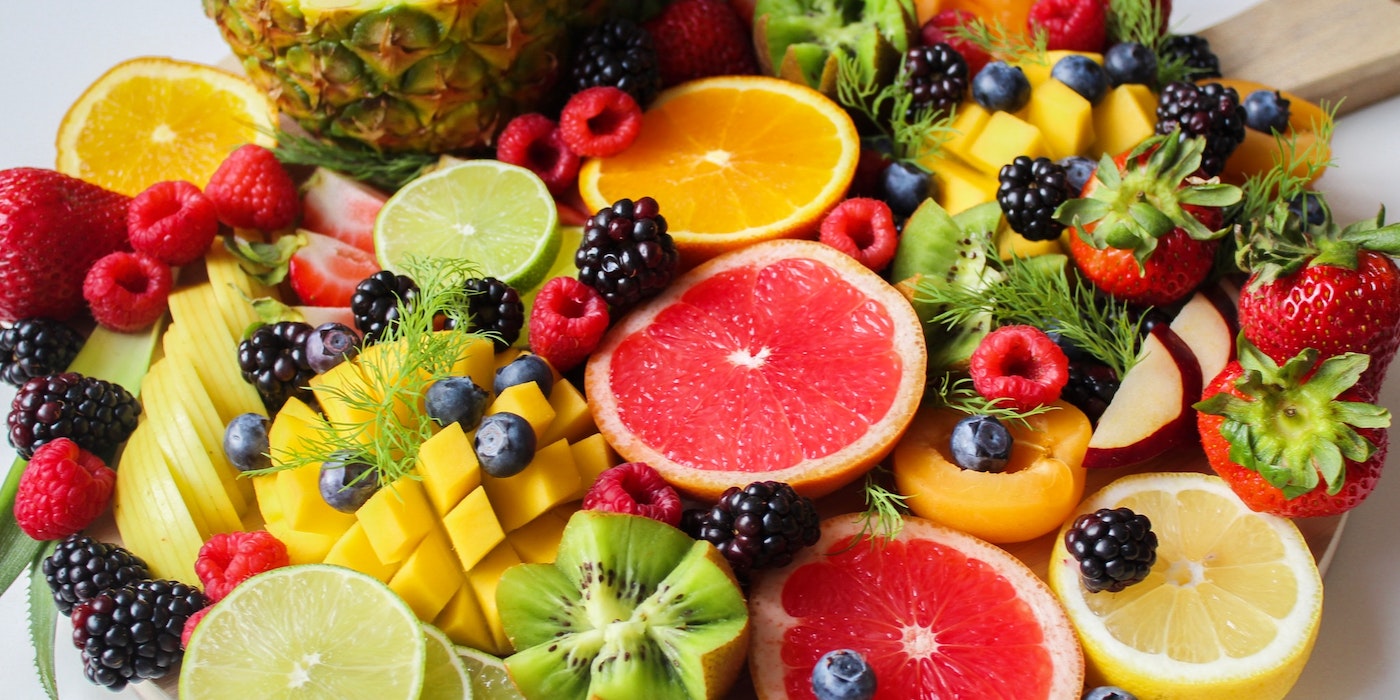Do you breastfeed your infant? Did you just have a baby? Have you ever considered which fruits could help your infant get the essential vitamins they need? If you agreed with these statements, you should read this article on 10 best fruits to eat after delivery.
Your diet becomes crucial when you are breastfeeding to make sure your infant is receiving enough nutrients. It’s even better if you can consume meals that increase the quantity or quality of your breast milk (these foods are referred to as galactagogues).
Fruits are a wonderful source of important vitamins and minerals and aid in preventing vitamin A and C deficiencies. Because they are a good source of essential nutrients like potassium, folate, and antioxidants, fruits can be a nutritious addition to a nursing mother’s diet.
10 Best Fruits to Eat After Delivery
Fruit is the one food that you can eat in moderation even though you may have to avoid a lot of other items. Check out our selection of scrumptious fruits that are great for nursing mothers if you enjoy eating fruit.
Green Papaya
Even though green papaya isn’t the best fruit for you when you’re pregnant, it’s one of the best when you’re nursing. The unripe, green papaya is a variation of the golden yellow papaya.
One of the best galactagogues, or a substance that encourages moms to produce more breast milk, is green papaya. The enzymes in green papaya help you absorb vitamins A, B, C, and E and also improve milk production.
Papayas that are still green or unripe improve oxytocin production, which promotes the production of breast milk. For many delectable Thai meals, green papaya is a common ingredient that has long been beloved in Asia. Papaya can be had raw along with yogurt, cereal, and other fruits.
Apricots
You ought to eat some apricots if you are a lactating mother. Calcium, potassium, vitamin C, and vitamin A are all abundant in apricots. Increased phytoestrogen levels, which behave similarly to estrogen, are brought on by apricots.
These substances aid in the regulation of female milk-producing hormones and boost milk production. Prolactin, the hormone that instructs your body to produce milk, can be increased by eating apricots. Dietary fiber, vitamin A, vitamin C, and potassium are just a few of the key components found in apricots.
Avocados
Avocados are a great source of omega-3, omega-6, and omega-9 fatty acids, which are all necessary fatty acids. These amino acids assist you in producing abundant breast milk and are necessary for many bodily processes. Avocados are excellent for regulating your cholesterol and blood sugar levels. Think about putting a few avocados in your salad or snacking on them right away.
Avocados also include high levels of potassium, vitamin C, and folic acid, all of which support your child’s growth and development. Consuming this adaptable fruit also aids in keeping cholesterol and blood sugar levels stable.
 Strawberries
Strawberries
Strawberries are lip-smacking. You should include these amazing fruits in your diet if you are a breastfeeding mother. They contain a lot of iron and a variety of vitamins, including calcium, potassium, magnesium, and vitamin C.
Before eating strawberries, talk to your doctor if you have a strawberry allergy or if someone in your family has a history of such an allergy. This is because allergies can also harm your baby through your breast milk.
In addition to being delicious, strawberries are a great source of important nutrients for the growth of your child. Additionally, its high water content aids in keeping you hydrated when nursing your child.
Banana
How can you say no to bananas? It’s impossible to refuse bananas. They are not only incredibly tasty but also a great source of vitamins and minerals. It is a fruit with lots of calories that can aid alleviate hunger when nursing.
Moreover, bananas’ high potassium quantity enables nursing mothers to conserve their fluid and electrolyte balance, which can aid a strong flow of breast milk.
Add bananas to your diet if you want to raise your folic acid levels. Bananas also include a lot of additional vitamins and minerals. Bananas also assist you in replacing the calories you lose when nursing your newborn.
Sapodilla (Chikoo)
You’ll need the stamina to feed your kid because breastfeeding is a taxing exercise. So, to avoid experiencing any nausea, vomiting, or dizziness, you need to complement your diet with foods that are high in energy.
One of the healthiest fruits for your body is the tropical fruit sapodilla, often known as chikoo. Chikoo gives your body the stamina and energy it needs to nurse your child. It has a lot of calories, which you will need to create enough milk for your infant.
By nursing alone, you can burn up to 500 calories each day. It is abundant in antioxidants and vitamins A and C, and it also promotes healthy digestion. Did we mention that it has a caramel pudding flavor?
Blueberries
One of the greatest fruits to eat when breastfeeding is this one. True nutrient treasure troves can be found in blueberries. Additionally assisting in preventing infections are their inherent antioxidant qualities. Vitamins A and K, calcium, potassium, and carbohydrates are among the vitamins and minerals that blueberries are particularly high in.
For years, blueberries have been prized for their extraordinary antioxidant capacities. While the quantity of antioxidants that are transferred to your infant through breast milk is unknown, this fact is known. Vitamins A and K, calcium, and potassium are just a few of the vitamins and minerals that blueberries are high in. Just be careful not to consume too many of these delectable fruits at once, as berries can sometimes cause flatulence in infants.
Cantaloupe
Your body will require a constant supply of vitamins and important minerals when you are pregnant or nursing. Consider ingesting some cantaloupes or sweet melons to meet your nutrient needs. These fruits can be eaten as snacks or as part of a fruit salad for dessert.
According to the USDA, cantaloupes contain 50 grams of vitamin C, which is almost half of the daily recommended for a breastfeeding mother. In addition, they contain a high water content that is comparable to that of strawberries and watermelon, which again aids breastfeeding mothers in maintaining their fluid levels.
Mango
Antioxidants and vitamin K are abundant in mangoes. A breastfeeding mother can restore her nutrition by eating foods high in fiber and potassium. Of course, ripe mangoes are also mouthwatering.
Some nursing women think eating mangoes can help them produce more breastmilk. Although there is no scientific proof to back up this assertion, it is thought that the vitamins and minerals in mangoes can aid increase breastmilk production while not halting it.
Eating ripe mangoes is a healthy and delectable way to enhance your breast milk supply if you are a nursing mother. Make sure to include in your diet vegetables and fruits that are just as wholesome and nutritious as mangoes. and naturally, maintaining a healthy level of hydration is crucial if you want to produce enough milk for your child.
Figs
Minerals like manganese, magnesium, copper, calcium, iron, and potassium are abundant in figs. A significant source of fiber, vitamin K, and vitamin B6, they are also. This is essentially the reason why many different cuisines use figs in their salads and why many baby food manufacturers do as well.
The inherent laxative properties of figs make digestion easier. Being an antibacterial, boosting the immune system, and protecting the liver are some of its key traits. There is proof that figs contain the essential vitamins and minerals required for your baby’s growth.
They are abundant in iron, copper, calcium, phosphorus, potassium, and magnesium, which are crucial for the development of the body’s various systems as well as the growth of both the body and the brain. Therefore, it is suggested that nursing mothers eat it.
 Worst Fruits to Eat After Delivery
Worst Fruits to Eat After Delivery
It is advised that nursing mothers eat a lot of fruit to receive enough nourishment. However, not all fruits are acceptable to eat at this period because they might harm the unborn child. It is best to take citrus fruits, cherries, and prunes with caution.
Oranges, Kiwi, Pineapple, Lemon, Lime, Grapefruit
These fruits contain a lot of citric acids, which may aggravate your baby’s digestive tract and bowel movements. What more is a small child who can’t manage big dosages of citric acid?
Some infants might not like the flavor and cry while eating it, another baby might throw up. In some cases, the citrus content of breast milk can cause diaper rash in your infant. Citrus fruits might irritate a child’s gastrointestinal tract (GI) due to their high acid content.
Prunes and Cherries
Cherries and prunes are regarded as fruits that naturally induce bowel movements. These are the fruits you go for when you’re constipated to aid in bowel movements. The digestive tract of your child may also be impacted by eating too many of these fruits. Additionally, if it makes you feel sick, avoid it because nursing requires you to stay well-hydrated!
Conclusion
Your health and what you eat both have an impact on the health of your unborn child. There will be times when you could feel like eating unhealthy meals, but keep in mind that you will choose healthy options for your unborn child.
Drink plenty of water throughout the nursing phase, and include foods like fruits and vegetables in your diet that don’t produce gas. If you require a suitable food plan while breastfeeding, you can even speak with a nutritionist.




